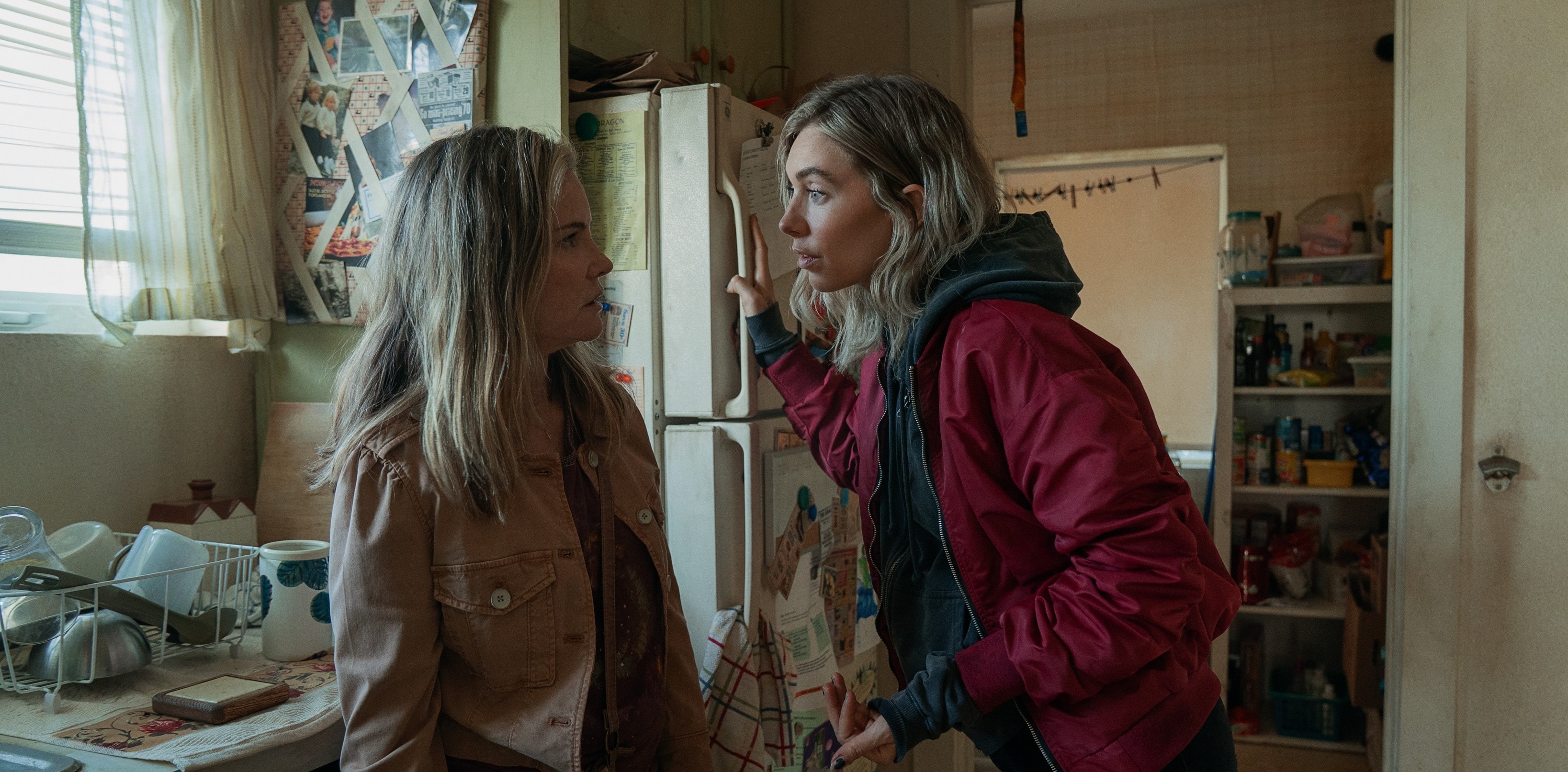Directed by Benjamin Caron, Netflix’s ‘Night Always Comes’ is a crime drama film that follows the story of Lynette. She lives with her mother and brother in her childhood home in Portland, but that home is on the verge of being taken away as the owner is preparing to sell it. Somehow, Lynette has convinced him to sell it to her at a lower price, but as the clock ticks on their deal, she must come up with $25k over the course of a night. The struggle to get that money, while she is already living from hand to mouth, leads her to some very dark places in her life. Her story touches on incredibly relevant subjects, presenting a dark reality of society today. SPOILERS AHEAD.
Night Always Comes is Inspired by the Real Housing Crisis
‘Night Always Comes’ is a fictional story based on the novel of the same name by Willy Vlautin and adapted for the screen by Sarah Conradt. The idea for the book came to the author while reflecting on the radical changes that he witnessed in the city of Portland, where he’d lived for more than a decade at the time. He talked about living in a working-class neighborhood and how it was much easier to afford a home around the time he moved to the city and bought his own place. Over the decade, he saw an increase in construction with cranes marking the skyline, which means that more new buildings were being constructed at the same time.

He also noted a beat-up house that was on sale, priced at $350k. Considering the condition of the house, Vlautin could see that the buyer would have to invest more money after the sale to bring the house to a proper condition. About twenty years ago, the same place could have been sold for around $120k, and that made the author wonder how a working-class person in today’s economy can afford to pay for a house. At the same time, the increasing number of homeless people did not escape his notice. He’d seen people living out of their cars and in tents. This major shift towards homelessness and the lack of affordable housing made him wonder about the future of the working class in the city, and that led him to consider a situation where a person would try to get the money so that they can buy a house for themselves and their family.

Once Vlautin had the basic premise in mind, he thought about the family, which led him to come up with the fraught dynamic between Lynette and her mother, Doreen. He thought about how Doreen, being a single mother whose one child has Down syndrome, would lead her to seek out partners who would give her some semblance of stability, even if it means that they are just getting groceries or fixing her car. He imagined how vulnerable and tired she’d have to be with her own situation to not be able to look for a healthy relationship that is good for her as well as her children. This cycle of toxicity creates more problems for the family, eventually leading to the circumstances that unfold in the movie.
The Fictional Lynette Represents the Hopelessness of the American Dream
When it came to writing Lynette’s character, Willy Vlautin relied on his imagination rather than looking towards a real-life person. In creating Lynette’s backstory, he focused on the burden of survival she and her family have had to carry. With the city changing rapidly around them, they struggle to keep up because their financial situation doesn’t allow them to. While Doreen tries to provide for her children, Lynette is forced to take responsibilities as a kid that make such a mark on her that she is not able to shake those things off even when he grows up. In some ways, Vlautin saw her as someone who “never really got to be a kid in a home that was ever on anything but survival mode.” The author also looked at Lynette and her family’s situation through the lens of capitalism and greed. He thought about Donald Trump’s quote, “The point is you can’t be too greedy.”

While Trump spoke of it with the context of him being an incredibly rich person, Vlautin thought about how the same would apply to a working-class person, someone who lives on the lower rungs of society. He started with the thought: “If greed is good, this is how it looks at the bottom. And she goes out into the night in a kind of a desperate, ill-advised mission, and she comes across just varying degrees of greed on a lower working-class level.” Vlautin pondered upon Lynette’s story as her desire to attain the American dream, of which being a homeowner is an important part, and how the definition of the dream has changed so much over the years that going after it becomes self-destructive for her. He sees her as someone on the verge of exploding because she is a “damaged person” who has been put into a desperate situation.

This desperation to be able to live better is brought out by Vanessa Kirby, who went to a women’s shelter in Portland and spent some time with homeless people to understand the constant pressure of living from paycheck to paycheck and being one crisis away from losing the roof over one’s head. The more she heard the stories of those women, the more she realised that they had been forced to become dependent on a system that didn’t really do anything to support them or to lift them out of their situation. With ‘Night Always Comes,’ the actress, who also serves as the producer, tried to present a realistic portrayal of the homelessness crisis through Lynette’s vulnerabilities. Kirby’s performance makes the character and her story deeply rooted in reality, even though she remains a fictional creation.
Read More: Night Always Comes Ending Explained: Does Lynette Buy the House?


You must be logged in to post a comment.